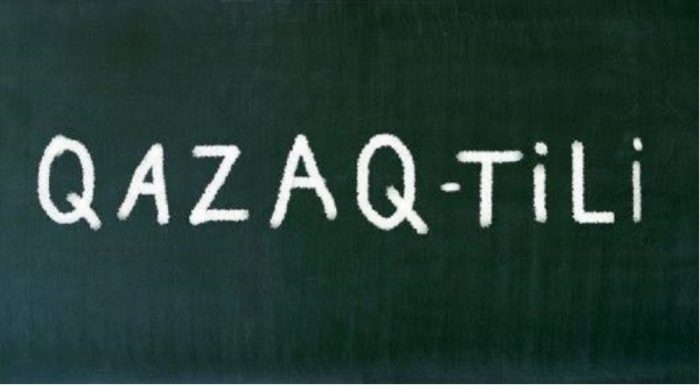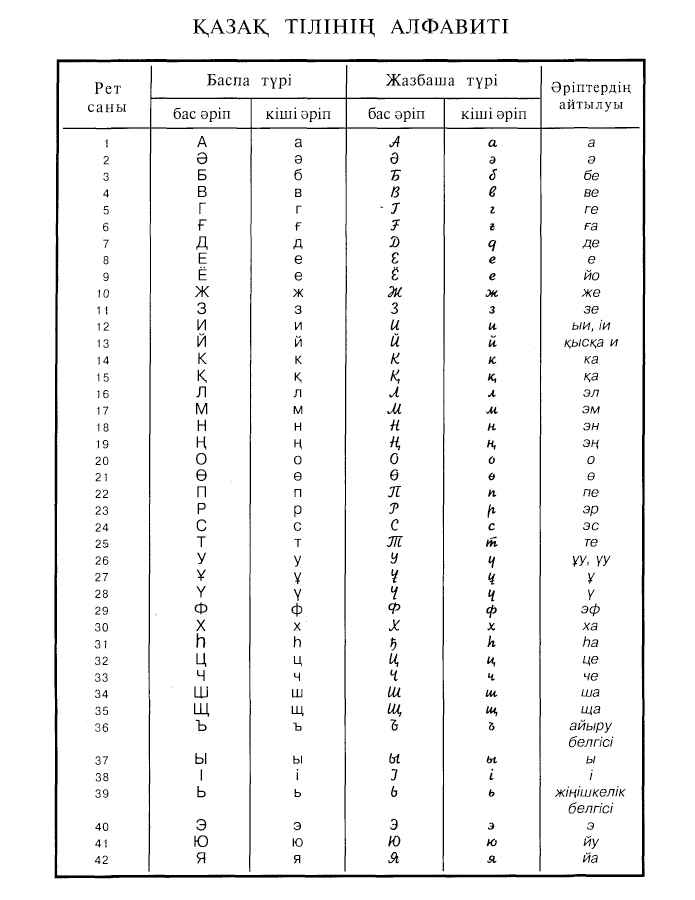
ASTANA — Kazakh President Nursultan Nazarbaev has decreed changes in the Latin-based alphabet that is to replace Cyrillic in the Central Asian country, abolishing apostrophes that came under severe criticism from linguists.
In a presidential order published on February 20, he approved a new version of a Latin-based alphabet that removes apostrophes for several sounds in the Kazakh language and replaces them with diacritical signs above letters.
Kazakhstan is moving to replace the Cyrillic alphabet with a Latin-based one, an apparent effort to emphasize Kazakh culture while distancing the country from Russia and shedding traditions left over after decades of domination by Moscow.
Nazarbaev, who has been in power since before the Soviet breakup of 1991, signed a decree in October that set out plans to make the switch by 2025.
But the alphabet published at the time was harshly criticized by linguists, who complained that apostrophes divided some words into four or five parts, making them impossible to read.
Information and Communications Minister Dauren Abaev told reporters in Astana on February 20 that Nazarbaev agreed to abolish the apostrophes following recommendations by IT specialists and other experts.
The chairman of the Culture Ministry’s committee for languages, Quat Borashev, said the new version will “make it much easier to write and read in Kazakh.”
Nazarbaev has been talking about switching to Latin for years. The effort gathered momentum in April 2017, when he ordered authorities to come up with a new alphabet for the Kazakh language by the end of the year.
Kazakhstan has used a Cyrillic-based alphabet for nearly 80 years.
In 1929, Soviet authorities replaced traditional Arabic-based alphabets used by Muslim minorities in the Soviet Union with Latin-based national alphabets. In 1940, the Latin alphabet was replaced with Cyrillic, the alphabet used in the Russian language.
Former Soviet republics Azerbaijan, Turkmenistan, and Uzbekistan — which, like Kazakhstan, are Turkic-speaking nations — abandoned Cyrillic scripts and switched to Latin-based alphabets in the early years after the Soviet breakup.
Source:
https://www.rferl.org/



